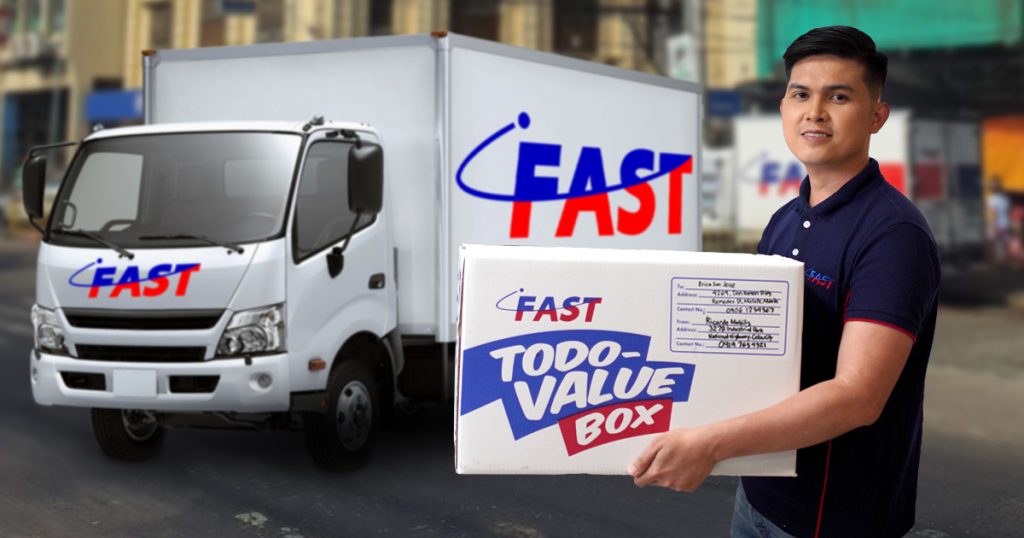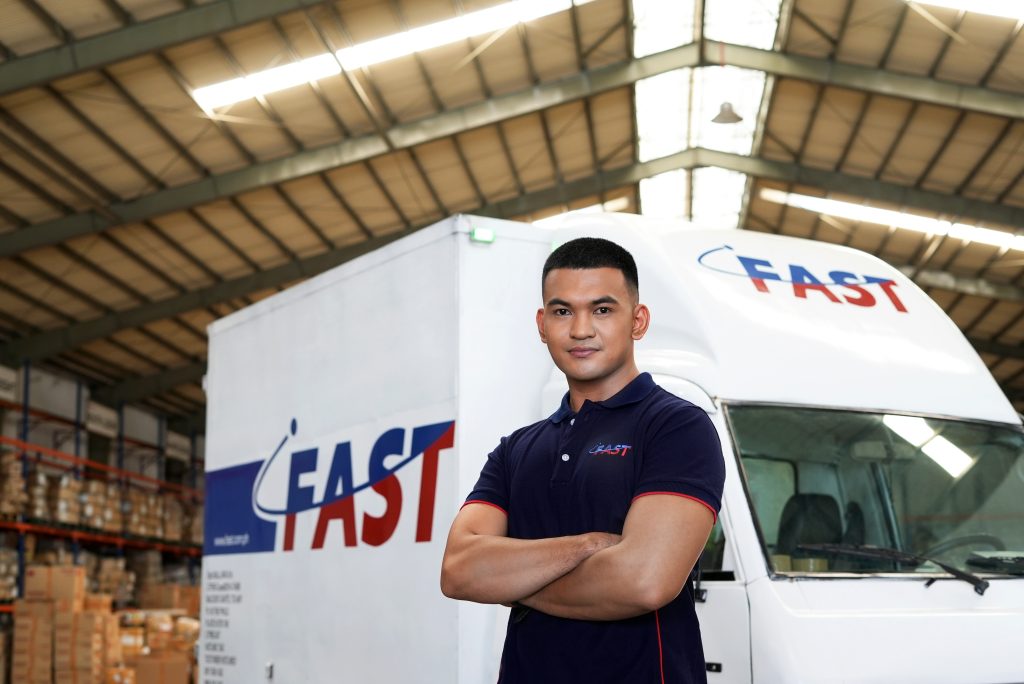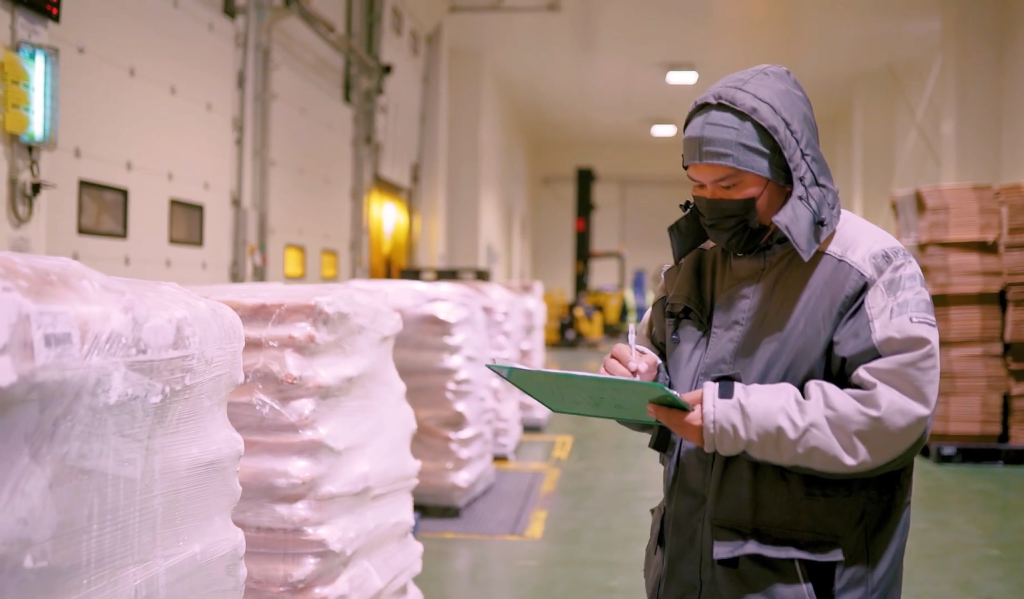
FAST Logistics Group, the country’s leading end-to-end logistics company, explores the challenges and opportunities for growth of the ColdChain industry in the Philippines.
Ensuring the integrity of temperature-sensitive goods is crucial for business success. This is particularly important for sectors such as food and beverages, pharmaceuticals, and biotechnology, where maintaining specific temperatures can spell the difference between a safe product and significant financial loss.
Thus, investing in reliable temperature management and intelligent ColdChain solutions has become a critical component of safeguarding products, protecting profits, and maintaining a competitive edge in the market. Companies depend on logistics providers to guarantee the quality and safety of their goods throughout the entire process, from cold storage to transportation.
Supply chain professionals and business owners should be informed of the current state of the ColdChain industry in the Philippines and actively seek innovative strategies to enhance their logistics operations.
What is ColdChain
ColdChain encompasses a series of processes and activities to keep products within a temperature-controlled environment. It involves various stages, starting with the careful receiving of goods, storage and inventory management, picking, dispatching, distribution, and last-mile deliveries.
From the moment products are received from businesses, they are stored in cold storage facilities that regulate temperature and humidity levels. They are also put in specialized vehicles or refrigerated vans during transportation. This is particularly important for products such as dairy, meat, processed food, poultry, medicines, vaccines, and infant formula, which require specific temperature ranges to remain safe for consumption.
This meticulous system plays a crucial role in preventing spoilage and contamination. ColdChain logistics ensures that the quality and safety of fresh items and perishable goods are upheld across the supply chain until they reach the consumer’s hands.
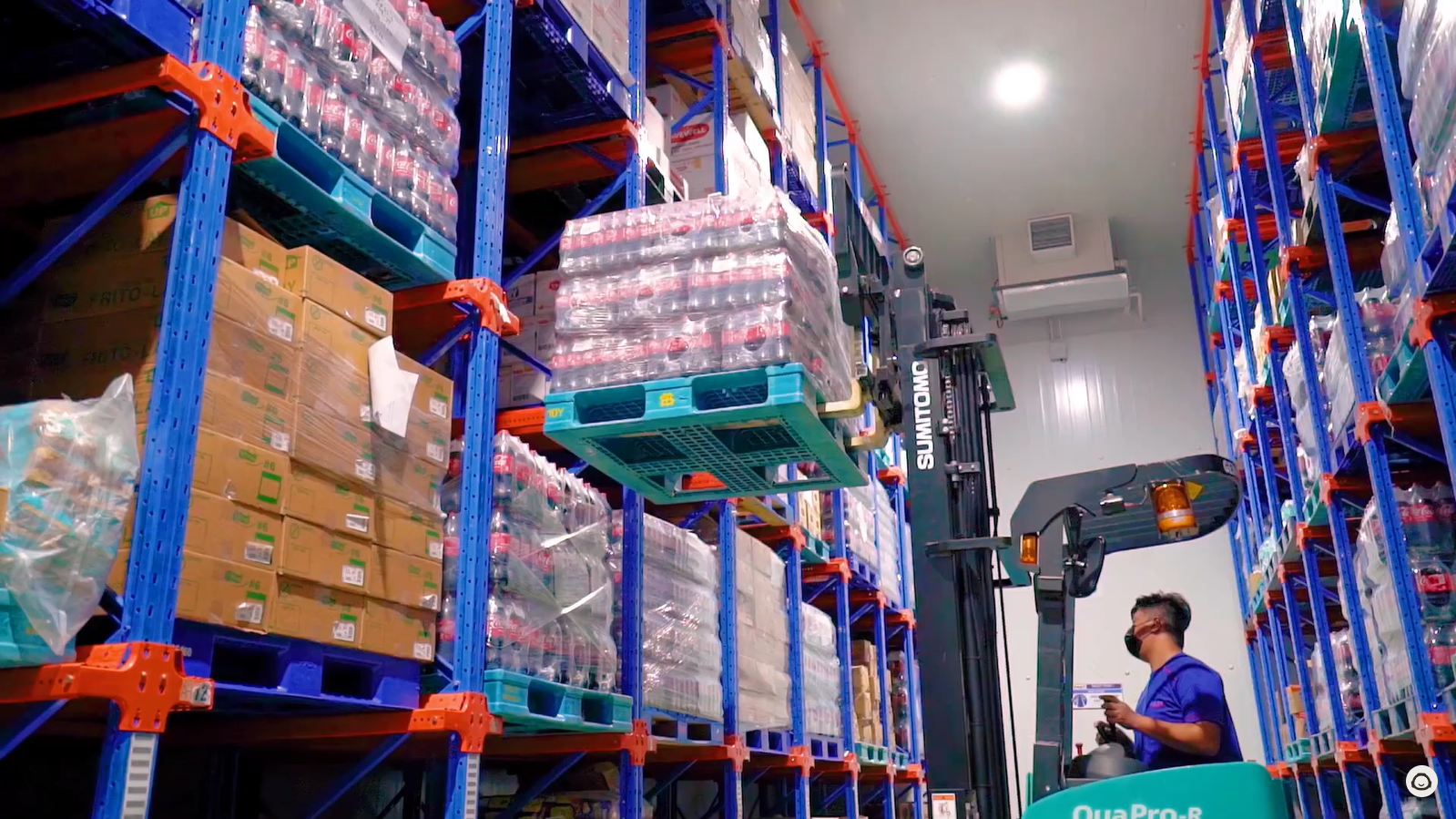
Importance of ColdChain in the Philippines
The ColdChain industry plays a critical role in various aspects of the Philippine economy and public health. Here are some of them.
Ensure the Safety and Quality of Temperature-Sensitive Goods
The primary objective of ColdChain solutions in the Philippines is to ensure the safety and quality of temperature-sensitive goods from producer to store to consumer. Meticulous monitoring of required temperature at every stage of the supply chain — be it during storage, handling, or transportation — helps logistics managers and business owners ensure their products are fresh, of high quality, and free from contamination.
Avoid Food Wastage and Pharmaceutical Product Spoilage
Wastage or spoilage of food such as fruits, vegetables, and dairy products, as well as medicines and vaccines, are significant concerns in the Philippines. ColdChain solutions play a crucial role in addressing these issues by effectively extending the shelf life of perishable goods for both consumers and the economy. This also ensures that communities have access to essential goods such as fresh produce and life-saving medications.
Maintain Public Health and Nutrition
In effect, the ColdChain industry plays a vital role in ensuring public health and nutrition. By preserving the nutritional value of food products and the potency of vaccines and medicines, ColdChain logistics enable Filipinos to have access to high-quality and safe food options and medications. Local farmers are also empowered to reach a wider market for their fresh produce, ultimately contributing to improved food security and better health outcomes for communities.
Increase Export Competitiveness
The ColdChain industry also contributes to the Philippine economy by enhancing the export competitiveness of manufacturers and producers. Businesses and companies can ensure that their perishable goods meet quality standards while reaching new markets and prolonging the economic value of their products. This helps in increasing their income, creating jobs, and supporting local farmers and producers.
Uphold Supply Chain Efficiency
An efficient ColdChain system significantly strengthens the overall supply chain efficiency by maintaining the required temperature conditions needed by some goods throughout storage, packaging, and transportation. This meticulous management process not only leads to substantial cost savings for businesses but also ensures that consumers receive their goods on time, preserving quality and freshness. It fosters a more resilient and responsive supply chain capable of meeting customer demands.
Adhere to Standards and Regulations
Regulatory compliance is another crucial aspect of cold chain solutions. Logistics providers help businesses meet these regulatory requirements and industry standards, avoid costly legal issues, and foster confidence among consumers. By ensuring that all processes adhere to the necessary guidelines, they also enhance the overall efficiency and reliability of the supply chain.
State of the ColdChain Industry in the Philippines
There are approximately 710,000 pallet positions for cold storage in the Philippines as of 2024, according to the Cold Chain Association of the Philippines (CCAP), a professional organization dedicated to advancing and supporting the country’s cold chain industry.
Capabilities of Philippine ColdChain Solutions Providers
Of this total, about half are located in CALABARZON and the National Capital Region, with over 204,000 and 148,000 pallet positions, respectively. Capacity buildup is concentrated in highly urbanized regions such as Metro Manila and CALABARZON, as well as Central Luzon, which has over 117,000 pallet positions, and Central Visayas, which has about 90,000 pallet positions.
“The ColdChain industry in the Philippines has been developing at an impressive rate over the past five years,” said CCAP Founding President Anthony S. Dizon. “Capacity-building activities have exceeded expectations as outlined in the National Cold Chain Industry Roadmap launched in 2020.”
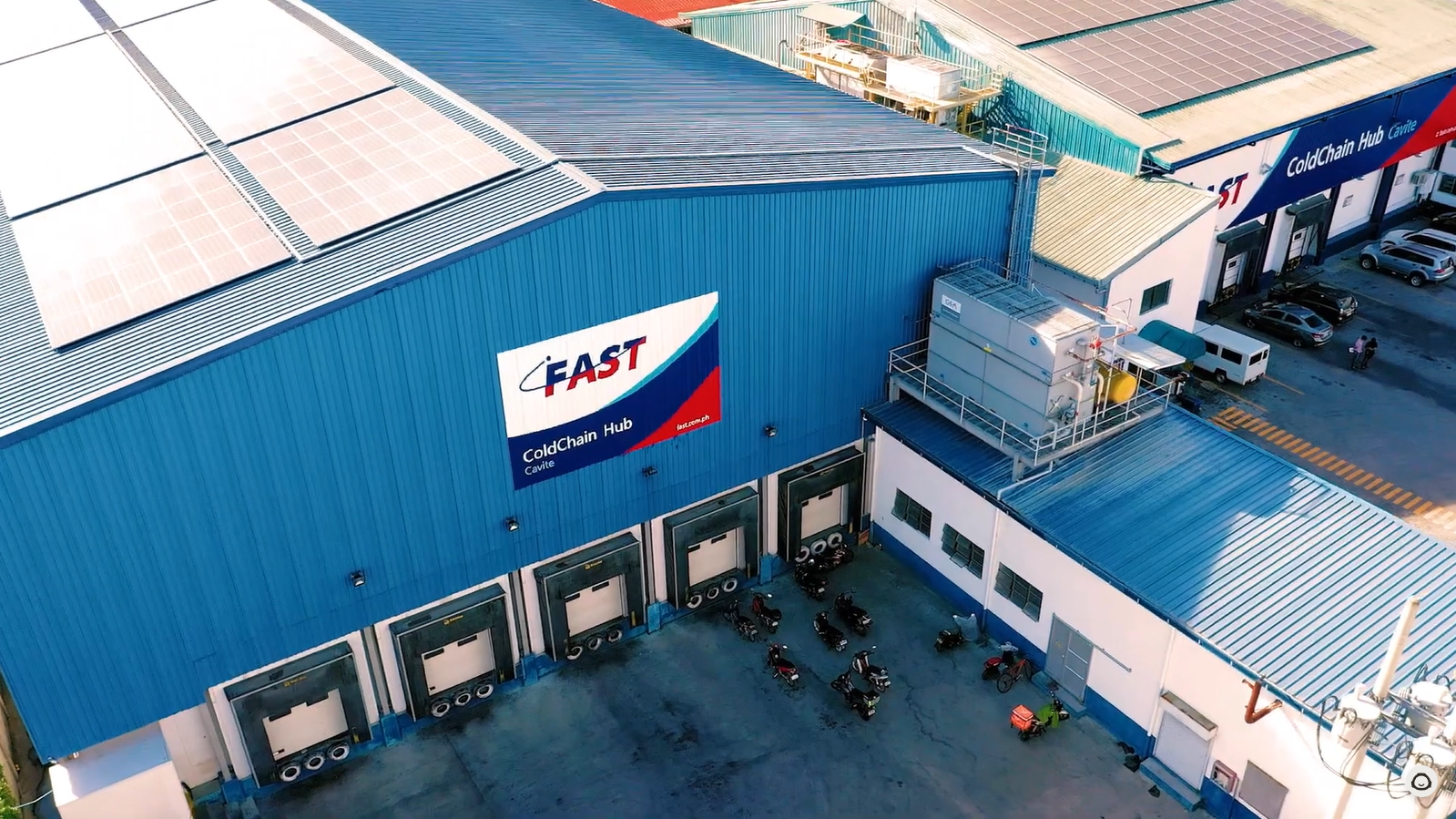
He noted that the capacity growth of the industry has been sustainable at 8 to 10% per annum over the past four years. The recent monitoring of CCAP also indicated that new projects are being initiated in less urbanized areas such as Northern Luzon and Western Visayas, Dizon said. This expansion is crucial for ensuring that the benefits of the ColdChain industry reach more regions and contribute to the overall development of the country.
Leveraging Technology for ColdChain
In terms of technology in cold chain logistics, CCAP is optimistic that the Philippines is keeping up with global trends. “The technologies necessary to stay aligned with international developments as far as refrigeration industries are concerned are accessible and available to Filipino stakeholders,” Dizon said. He also highlighted that the country’s ColdChain solutions providers are utilizing technology and new investments to be responsive to customer needs.
Among the technologies used in ColdChain operations in the Philippines include centralized temperature control monitoring systems that provide real-time visibility into temperature and humidity levels in cold storage facilities or refrigerated vehicles. This ensures that any deviations are swiftly addressed, maintaining product quality and safety for everything from fresh produce to frozen seafood.
The ColdChain industry is also experiencing enhanced efficiency through the adoption of advanced technologies like Warehouse Management Systems and Transport Management Systems, among others, which further streamline and hasten logistics operations. These software solutions also reduce the risk of human errors across the supply chain, while providing real-time visibility for better decision-making.
In addition, artificial intelligence and machine learning also empower businesses to make data-driven decisions that improve overall operational performance. By leveraging these technologies, companies can significantly enhance their efficiency and responsiveness to market demands.

Challenges of ColdChain Industry in the Philippines
The ColdChain industry in the Philippines also faces certain challenges that need to be addressed. Here are some of them.
High Capital Requirements
Expanding cold storage facilities and warehouses equipped with refrigeration systems for temperature-sensitive products necessitates a substantial capital investment. This process involves careful planning, construction, and obtaining the necessary permits. Given these significant financial demands, businesses must explore various funding options, including loans, grants, and private investments. Additionally, seeking strategic partnerships can offer both financial backing and industry expertise, enabling companies to successfully navigate this expanding market.
Expensive Operations
The cost of doing business in the ColdChain industry can be high, mainly due to energy consumption and maintenance expenses. These costs are driven by the need to maintain optimal conditions for perishable goods, which requires advanced technology and constant monitoring. Additionally, the infrastructure required to support ColdChain operations, including specialized vehicles and storage facilities, further contributes to the overall expense.
Stringent Regulatory Requirements
Navigating the intricate regulatory landscape poses significant challenges for businesses in the ColdChain industry. Overly burdensome compliance requirements can lead to administrative strain and heightened operational costs. This not only distracts companies from their core activities but also hampers their ability to enhance service delivery and improve customer satisfaction.
Supply Chain Vulnerabilities
Supply chain vulnerabilities, including disruptions in transportation and logistics, can significantly impact the efficiency of ColdChain operations, which is crucial for packaging and preserving temperature-sensitive products like pharmaceuticals and perishable foods. These disruptions can arise from various factors, such as natural disasters, calamities, or even unexpected spikes in demand. disruptions can lead to delays, spoilage of perishable goods, and increased costs. To mitigate these risks, companies should build robust contingency plans that address potential challenges.
Product Seasonality
Product seasonality poses a considerable challenge for the ColdChain industry, primarily due to the dramatic fluctuations in demand for specific items throughout the year. For example, seasonal fruits and vegetables often experience surges in demand during certain months, while products like frozen foods tend to maintain a more consistent demand.
Cost Fluctuations
Fluctuations in the cost of raw materials and energy can significantly impact the profitability of businesses operating within the cold chain industry, which is crucial for preserving perishable goods. These variations can arise from global market trends, supply chain disruptions, and geopolitical factors. By being proactive in these areas, businesses can better safeguard their profits and ensure the reliability of their cold chain operations.
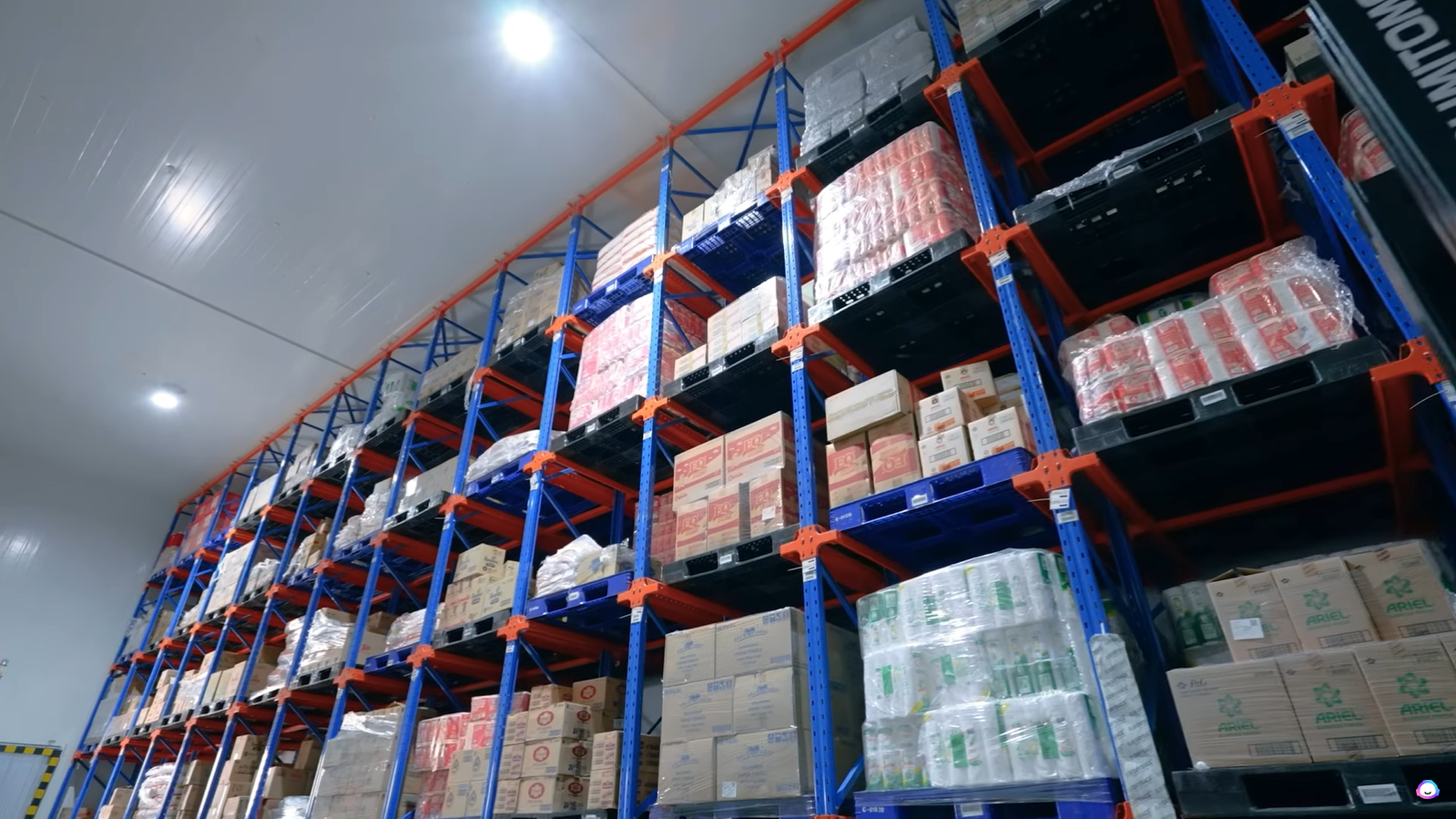
Growth Opportunities of ColdChain Industry in the Philippines
Despite facing challenges, CCAP is confident that the ColdChain industry in the Philippines will continue to grow due to several key factors.“We have maintained the growth curve and we expect that we will continue to experience growth because the factors that militate for growth are all available within the country,” Dizon said.
Here are some of those factors.
Population Growth and Urbanization
The growing population and urbanization in the Philippines present significant opportunities for the ColdChain industry. With more people living in densely populated areas, the demand for temperature-controlled goods such as fresh produce, dairy products, and frozen foods is expected to increase.
This growth also presents an opportunity for the cold chain logistics sector to expand its reach into new markets and meet rising consumer demands. By leveraging advanced technologies and innovative solutions, businesses can ensure that these goods are delivered efficiently and safely.
Heightened Awareness of Food Safety
Consumers are becoming more health-conscious and concerned about food safety. As a result, the demand for temperature-controlled goods is expected to increase. ColdChain solutions providers will play a key role in ensuring the quality and safety of perishable goods and temperature-controlled products.
Businesses can build consumer trust and gain a competitive edge by investing in advanced technologies, enforcing strict quality control measures, and following regulations. Ultimately, prioritizing safety and quality not only protects consumers but also strengthens brand loyalty.
New Technologies and Systems
From real-time monitoring systems to temperature-controlled packaging, innovations and technology have improved the efficiency and reliability of cold chain operations. With these, businesses can reduce costs, improve supply chain visibility, and enhance overall customer satisfaction.
Embracing these advancements not only streamlines processes but would further spur growth and innovation within the ColdChain industry. Digital transformation also opens up new opportunities for collaboration and sustainability, ultimately leading to better service delivery and increased consumer trust in temperature-sensitive goods.
Rise of E-commerce Platforms
The rise of e-commerce platforms also increased the demand for fast and reliable delivery of temperature-sensitive goods. Businesses can take advantage of this trend by partnering with e-commerce companies or developing their own e-commerce capabilities.
This can open up new markets and increase sales, leading to further growth and success in the ColdChain industry. Moreover, embracing technology can streamline operations and enhance customer experience. As more consumers prioritize convenience, investing in efficient logistics will be crucial for staying competitive.
Government Support
The Philippine government has various initiatives and programs to improve food security in the country. The cold chain industry can play a vital role in supporting these programs by developing efficient and reliable supply chains for local producers. This not only contributes to the growth of the industry but also helps improve the livelihoods of small-scale farmers and producers.
With government support, the cold chain industry is further poised for growth, ensuring that food reaches consumers fresh and safe while enhancing economic opportunities for farmers and local producers. As the demand for fresh produce continues to rise, a well-supported cold chain infrastructure stands to benefit consumers, businesses, and communities.
Strengthening the ColdChain Industry in the Philippines
The ColdChain industry in the Philippines plays a crucial role in ensuring the safety and quality of temperature-controlled goods. It contributes to food security, public health, and economic growth. While the industry has made significant strides in recent years, there are still opportunities for growth and innovation.
By leveraging advanced technologies, exploring new markets, and investing in capacity building and development, logistics providers and businesses can enhance efficiency, reduce waste, and improve the overall integrity of cold chain operations. The private sector’s willingness and commitment is a positive sign for the future of the industry.
For logistics professionals, supply chain managers, and business owners, understanding the present conditions and growth potential of the ColdChain industry is essential for making informed decisions.
Fresh by FAST – Intelligent ColdChain Solutions for Your Supply Chain
As the leading end-to-end logistics provider in the Philippines, FAST Logistics Group continuously improves its processes and harnesses technology to optimize our ColdChain operations under the brand “Fresh by FAST.” We are the trusted partner of the leading Filipino brands across various industries for their temperature-controlled needs.
With over 50 years of industry leadership, FAST helps those in the business of fresh maintain the quality and safety of their goods. By leveraging cutting-edge technology and extensive experience, FAST ensures that products meet the highest standards, enabling businesses to thrive in a competitive market while delivering safe and fresh items to consumers.
Take your business to the next level. Connect with our Solutions Experts or visit http://linktr.ee/fastlogisticsph to learn more about our ColdChain capabilities.
Categories
-

FAST Ahead
Includes case studies and testimonials of our partners as well as other featurettes from industry experts
-

FAST Hacks
We simplify logistics terms and provide practical tips and solutions for the DIY in you
-

FAST Highlights
Know more about our history, various brands, achievements, and news updates
-

FAST Moments
Get to know the people of FAST, our employee programs, as well as our various ways of giving back to the community
-
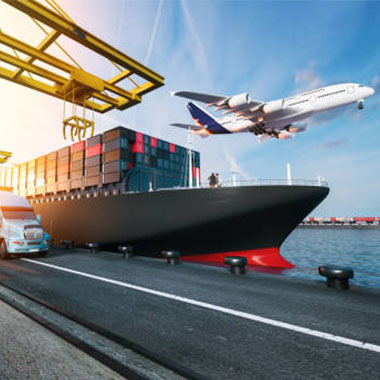
FAST Solutions
Learn more about the various logistics solutions that we cater to and offer our clients, as well as tech innovations, and service facilities
